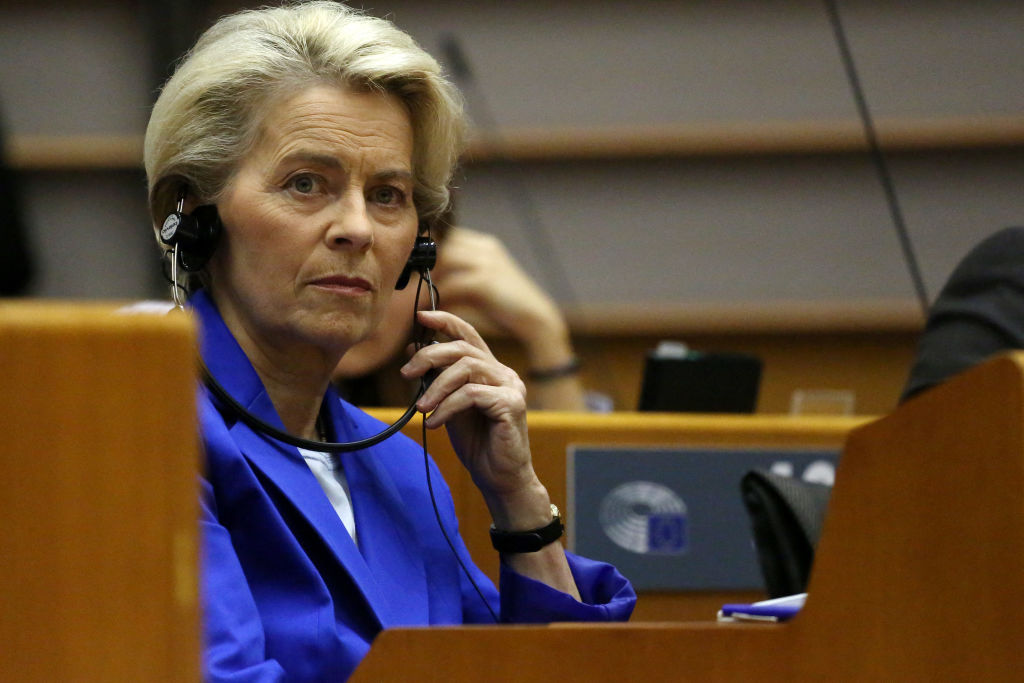Yesterday the EU announced plans to “create a CIA-style European spy service”, as Politico’s headline put it. On social media, many responded to the report with satirical and mocking comments. “But there already is a CIA-style spy agency operating across all of Europe. It’s called the CIA,” one user quipped on X. “I propose to call the new agency Gestapo,” jibed another. Such comments are indicative of the mood in Europe today, where any policy proposal coming out of Brussels tends to be met with a heavy dose of scepticism and mistrust.
This is understandable, given the increasingly unaccountable nature, ever-broadening scope, and growing list of policy failures of EU institutions — first and foremost the European Commission. So it’s not surprising that most people instinctively find the idea of giving “Empress” Ursula von der Leyen an army of supranational spooks to spy on citizens and carry out other nefarious “CIA-like” activities deeply disturbing.
Fortunately, that’s unlikely to happen anytime soon. Politico’s clickbaity headline refers to one of the many proposals contained in a new report authored by former Finnish president Sauli Niinistö on “Strengthening Europe’s Civilian and Military Preparedness and Readiness”. Highlighting recent crises — particularly the war in Ukraine — Niinistö advocates for a “comprehensive preparedness” approach, which would ensure the EU can “function under all circumstances” through an integrated response to cross-border crises. This approach, according to the report, must incorporate a “whole-of-government and whole-of-society” framework, enabling active participation from citizens, private sectors, and public authorities.
The report then puts forward a mixed bag of vague proposals, such as cultivating a “preparedness culture” within EU institutions and among citizens, long-term investments in critical infrastructure and defence, formalising cross-sectoral crisis response and “enhancing EU intelligence-sharing capacities”. The latter is the one most news reports have picked up on.
One area of focus is enhancing intelligence-gathering and sharing at the EU level, primarily in terms of improvements to the bloc’s Single Intelligence Analysis Capacity (SIAC), which currently depends on voluntary contributions from member states. The report thus emphasises the need for more structured and reliable intelligence-sharing from member states. More controversially, in addition to SIAC’s role, the report also proposes the eventual development of an EU intelligence cooperation service, which would effectively amount to a supranational body that would be complementary to national intelligence-gathering activities.
This would be a very disturbing development: giving an accountable, undemocratic institution such as the EU its own intelligence agency would be yet another step in the bloc’s transformation into a techno-authoritarian juggernaut. Just like with the CIA, such powers would most likely be directed mainly at citizens and even member states rather than “foreign enemies”. What’s more, anyone who thinks this would be a step in the direction of greater “strategic autonomy” for the EU would be disappointed: the report also calls for “strengthening EU-Nato cooperation”, which means that any “EU intelligence agency” wouldn’t just be a CIA-like agency: it would, quite literally, be a subsidiary of the CIA.
In many respects, that is already the case: EU governments already share their intelligence with the US-led Five Eyes network tying together the agencies in the United States, Australia, Canada, New Zealand and the United Kingdom. The same is not true in reverse, as the US doesn’t share all its information with its fellow powers: in fact, it’s well-known that American intelligence agencies regularly spy on their European “allies”.
On a positive note, it should be emphasised that this new agency is unlikely to see the light of day any time soon. During the launch of the report, von der Leyen herself admitted that there is still a lot of resistance to such a proposal in European chancelleries, stressing that the focus for now would be just on “strengthening of information sharing”.
It’s also unclear how the EU would pay for this new agency, given that the budgets of member states are stretched and there is little appetite for issuing more common debt. Niinistö himself admitted that, in his talks to draft the document, he had encountered “many critical voices” on the possibility of new joint loans, because some countries refuse to engage in new mechanisms whereby they “take from us and give to others”.
Still, we should never forget that, in recent years, the European Commission has already broadened its scope into several policy domains that have traditionally been the remit of national governments, such as foreign policy and defence and security matters. In the meantime, the Overton window of supranationalisation has inched open just a little more.











Join the discussion
Join like minded readers that support our journalism by becoming a paid subscriber
To join the discussion in the comments, become a paid subscriber.
Join like minded readers that support our journalism, read unlimited articles and enjoy other subscriber-only benefits.
Subscribe